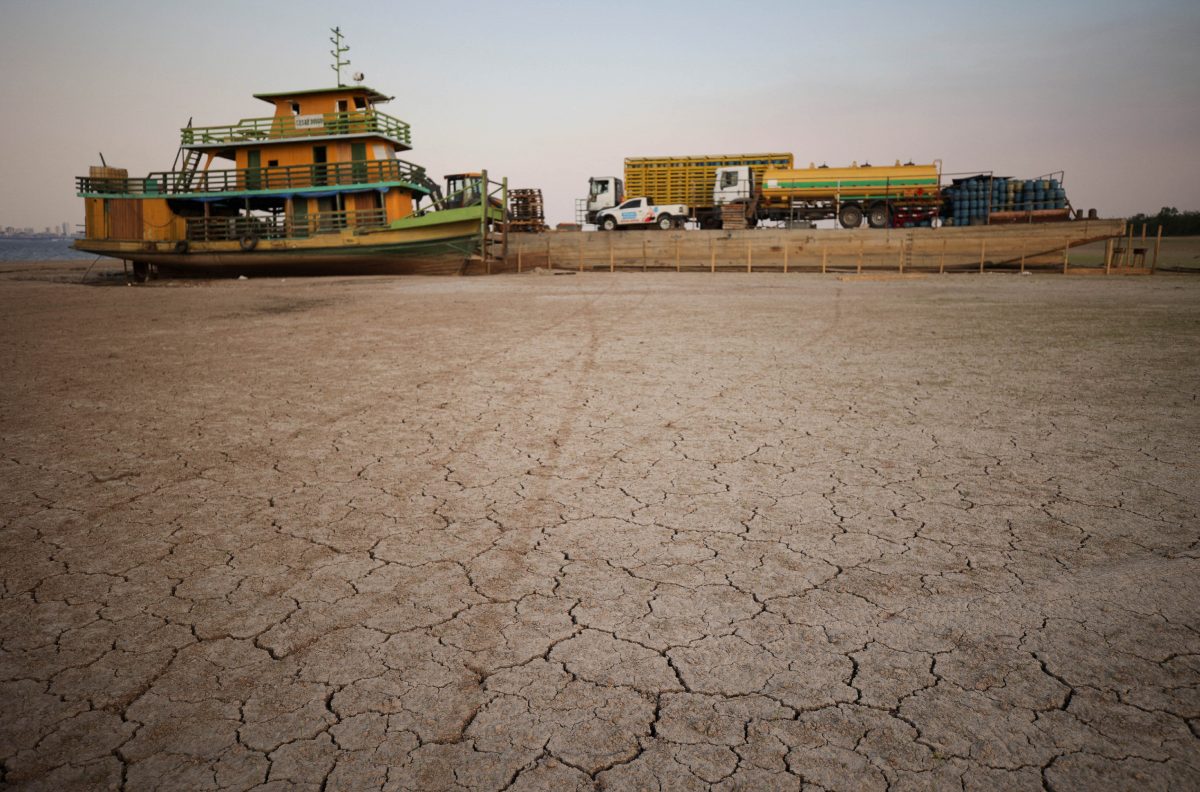MANAUS, (Reuters) – A barge carrying three trucks and 2,000 empty cooking gas cylinders lies stranded on the vast sand banks of a diminished Rio Negro river after running aground last month, highlighting the plight of river transport in the Amazon region hit by severe drought.
Officials warned that low river levels risk disrupting grains exports from nearby farm states. On the Madeira, they said barge routes used by grain firms such as Cargill, Bunge BG.N and Amaggi, are open but loads are being reduced as a precaution.
Shipping and logistics group A.P. Moller-Maersk MAERSKb.CO warned customers on Wednesday that navigation in the area of Manaus, the largest Amazonian city, was not possible.
“The depth of the Amazon river at its critical points has reached a level that renders maritime operations in Manaus unfeasible,” the company said.
Maersk said in a separate statement the severe drought has hit 60 of the 62 municipalities in Amazonas state, causing cabotage service to and from Manaus to be temporarily suspended.
The captain of the beached boat that tugs the barge, Junior Cesar da Silva, said he had come to pick up supplies in Manaus for Borba, 280 kilometers (175 miles) away on the Madeira, an Amazon tributarywhere water levels have fallen to record lows.
“As we approached, we ran aground and help came too slow to re-float my boat as the water was receding very quickly,” he said in an interview.
The Amazon region is under pressure from the El Nino weather phenomenon, with the volume of rainfall in the northern Amazon below the historical average and river levels falling near record levels.
“On the Madeira, beaches and rocks are appearing that we’ve not seen before,” Da Silva said.
The heat wave and drought, linked to the mass deaths of fish and river dolphins, has limited the access to supplies by local communities that depend on rivers transport in the rainforest.
Cesar said store shelves were emptying out in Borba, where his barge delivers food, drinking water, cooking gas, gasoline and building materials.
Brazil’s government in September set up a humanitarian task force to deliver food parcels to isolated villages and Indigenous communities. On Tuesday, Indigenous groups in the Amazon asked the Brazilian government to declare a climate emergency as their villages have no drinking water, food or medicine due to a severe drought.
As part of a contingency plan, Maersk’s local operator Alianca Navegacao e Logística is diverting vessels bound to Manaus to alternative ports including Vila do Conde and Pecem.
Maersk’s Alianca expects to reestablish service as soon as navigability conditions allow in mid-November, with restricted capacity, according to Alianca’s Brazilian website.
Larry Carvalho, a lawyer specializing in logistics, said freight costs were rising as ship programming was being impacted in the Amazon, with critical situations in Manaus and on the Madeira river, where grains companies move produce.
Speaking to Reuters by telephone, he said higher freight costs were affecting companies that operate in the so-called Manaus Free Trade Zone area, where fiscal incentives apply to foster the industrialization of the North of Brazil.

